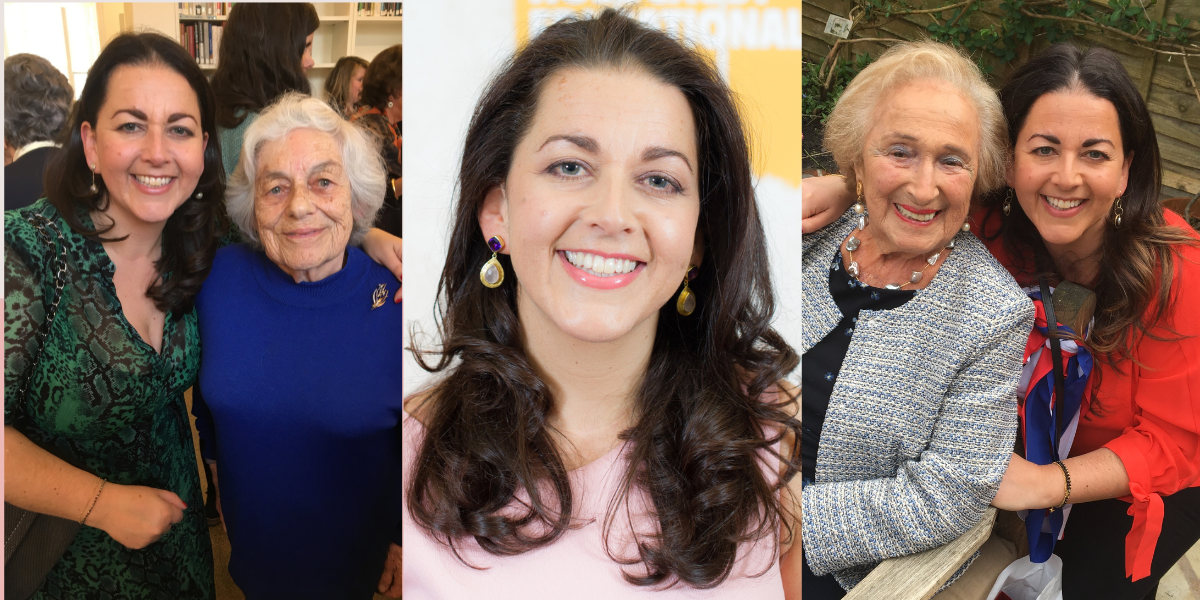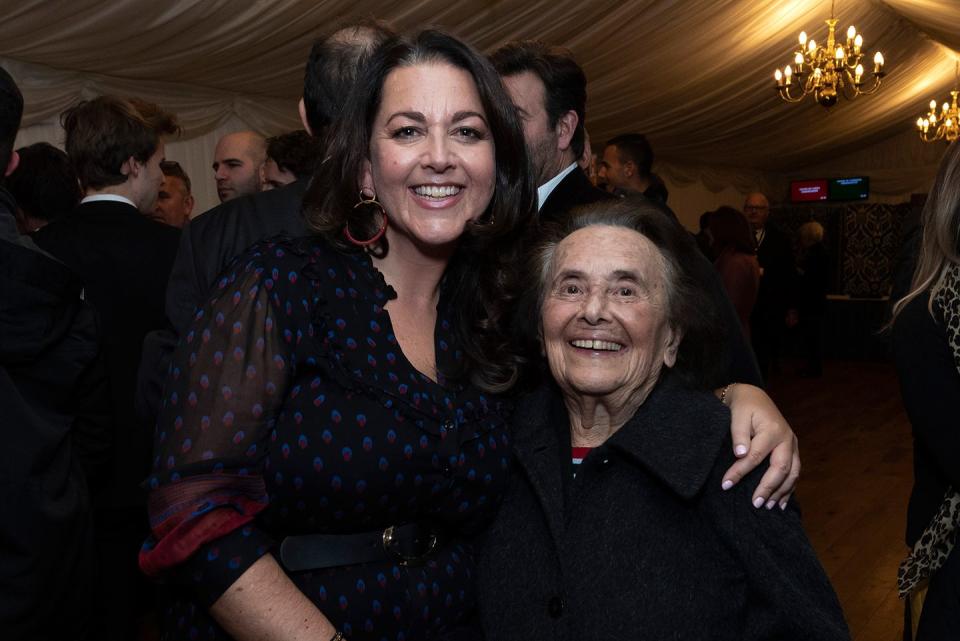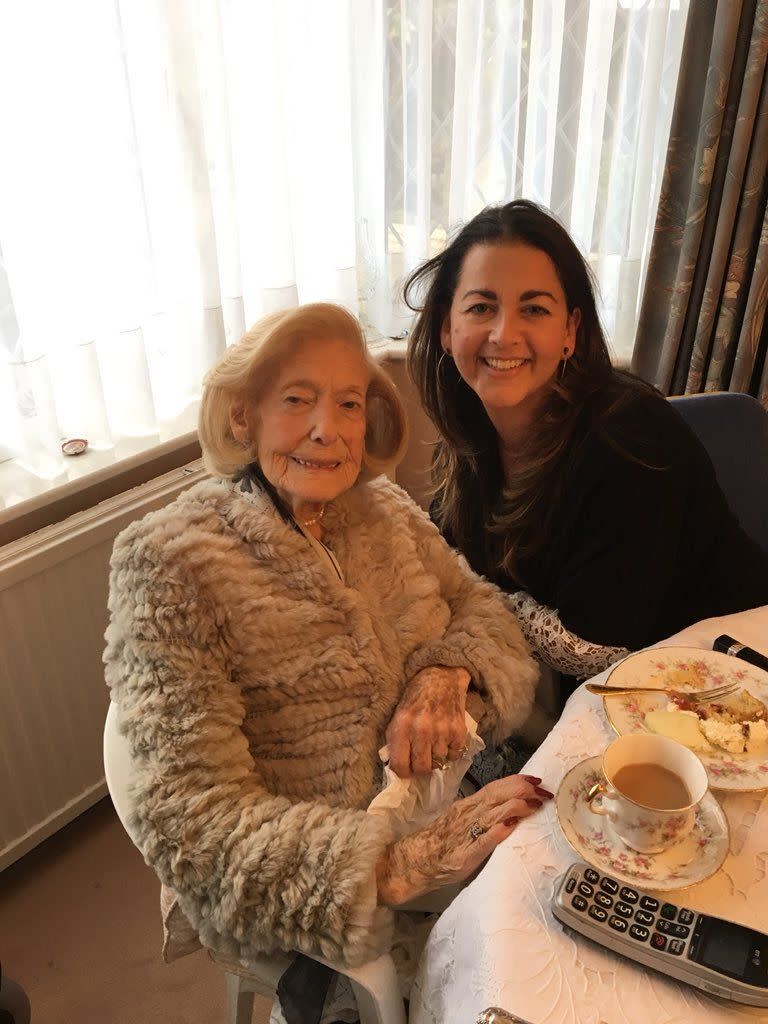Karen Pollock, CEO of Holocaust Educational Trust, on our duty to remember

“What's really important about having a day of remembrance is that people from all backgrounds and different communities will come together and say we cannot forget,” Karen Pollock, CEO of Holocaust Education Trust (HET) tells me over the phone on a crisp, January morning. “We reaffirm our own personal responsibility to be part of never forgetting, by carrying the legacy but playing an active role today,” she continues. “It’s all part of being responsible citizens, right?”
Being “responsible citizens” is something many of us aim to do every single day of the year, but it feels especially poignant when considering a catastrophic, historic event like the Holocaust.
I’ve arranged to call Karen to talk about Holocaust Memorial Day, which takes place on 27 January every year. To mark the event, a theme is set out by the Holocaust Memorial Day Trust — and this year’s is "Fragility of Freedom". Some people find that thinking about these world-changing events within a theme allows for more meaningful reflections — and Karen offers hers. “It makes us question whether we take our freedom for granted,” she says. “Something we can all learn from the Holocaust is how lucky we are today to live freely in society — we are free to express our opinions, our beliefs and our religious freedoms.”

When discussing freedom, Karen speaks about her own personal connection to the theme and why it strikes a chord with her. While her role at HET sees her organise trips for young people across the UK to visit Auschwitz and hear from survivors, she recounts the first time she visited the death camp with her mother and the effect it had on her as a Jewish woman. “The first time I visited Auschwitz, my mum came with me, and I remember feeling extremely aware as we walked out those gates that so many people wouldn't have been so lucky. It really struck me how lucky I was to live in this age, because we wouldn't have walked out however many years ago.”
Karen speaks in a moving yet matter-of-fact tone — reflecting on the importance of this year’s theme in how we see the world and treat the people around us. “When we talk about the Holocaust, we’re examining how this was able to happen. It was because of a breakdown of society and widely accepted moral and cultural norms just falling apart, and the values that I hold deep like democracy and human rights, being issues that can somehow disappear. And it’s also talking about how readily normal people can follow and participate in that process, not just dictators and demagogues, but ordinary people who go along with it.”
This time last year, HET put me in touch with two Holocaust survivors, Marcel Ladenheim and Gabriele Keenaghan, to talk about their experiences. I spoke with these two astonishing individuals about exactly the same thing – the role that ordinary people can play in these horrific events. Both iterated how "ordinary people" can be perpetrators of catastrophic violence, yet also how they can be resistors, risking their own lives to help keep others safe. Both in my capacity as an interviewer and as a Jewish woman myself, I was deeply affected by how two individuals who had experienced something so incomprehensible could remain so upbeat and hopeful.
Talking about the importance of Holocaust memorial feels particularly pressing right now. The Met Police reported in October 2023 that antisemitic hate crimes in London were up 1,350% (Islamophobic offences also rose by 140%), while Chancellor, Jeremy Hunt said he was “deeply concerned about the rise of antisemitism in our country” in his Autumn Statement, pledging up to £7 million over the next three years to tackle antisemitism in UK schools and universities.

Clearly, there is still a lot of work that needs doing, in both education on the Holocaust and combatting antisemitism. Karen talks in depth about the worrying increase of Holocaust denial we are seeing as well as the importance of language in that context.
“We’re talking about a seismic event in history where six million Jewish men, women and children were murdered just because they were Jewish,” she says.
“So, when we see and hear people misuse Holocaust language and imagery – whether flippantly or deliberately – we have to challenge it. We need to make sure people understand this historic event – what happened to whom by whom – but also understand that it’s something that can't happen again to anyone.”
I ask Karen about how we can continue to ensure future generations can access meaningful materials to learn about the Holocaust.
“At HET, we educate all year round,” she tells me. "We're enabling teachers across the country by providing them with resources to use in the classroom. We have survivors, their children and even their grandchildren sharing their testimonies in schools. We’ve also got our Lessons from Auschwitz programme, which enables thousands of 16 and 17-year-olds to see Auschwitz for themselves. We do this because we really believe that meaningful experiences leave a lasting impact you won’t ever forget – allowing bearing witness to take on a whole new meaning.”

And, on the topic of witnesses, Karen and I end our call by speaking about the survivors that continue to work with HET – and their power to educate and change lives. “The survivors I've had the privilege to work with are really inspiring,” she says, with a huge amount of warmth in her voice. “Their testimonies are devastating, yet they are determined to retell them. That means re-living their experiences every time they talk about them, but they're doing it because people need to know about it. They’re also doing it for their families, their loved ones and for all the Jewish people they didn’t even know who died in the Holocaust. It’s incredible — I think they regard it as their duty — but what a selfless role to take on.”
Choosing to mark Holocaust Memorial Day is hugely important but can understandably be a distressing thing for many people to contemplate.
Yet, the strength and attitudes of survivors prove why it’s so necessary. “Some survivors were never able to move on as they had too much trauma,” Karen says. “And it's important to acknowledge that I deal with the survivors who somehow managed to move on, and that determination is staggering. After the war, they had to rebuild their lives – often with nothing and no-one left. And now, despite being in their eighties and nineties, they're determined to get up at the crack of dawn and get a train or a car or whatever else to go to a school anywhere in the country.
"I also look at groups of survivors, like the '45 Aid Society, who meet up once a year for a reunion dinner with each other and their families. They make speeches and reflect — but it’s also a celebration of life with dancing and music. They live life to the full and make the most of it."
You Might Also Like


